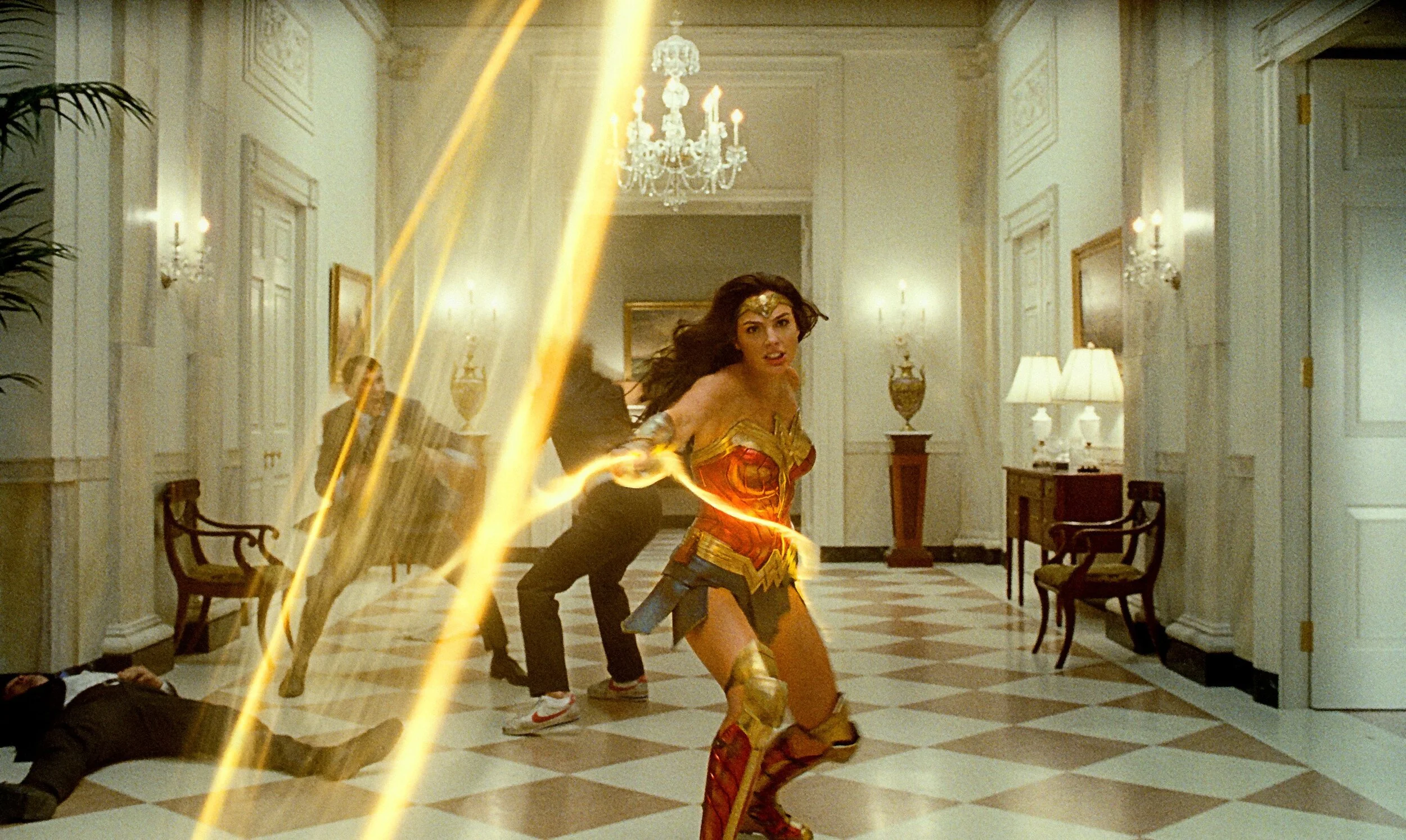Film Review: Is "Wonder Woman" the first good DC film in years, or just another misfire?
Gal Gadot's Diana Prince, aka Wonder Woman, is crafty but naïve: she draws great joy from ice-cream and babies, but also violence and mayhem. She's the first and most eager to rush into battle, but perhaps the only one whose sense of kindness and compassion far outweighs her sense of self-preservation. You might say she contains multitudes. Incidentally, Gadot – who I'm not yet convinced is a great actor – is one hundred percent perfect in this role, to the extent that it would be a much poorer movie without the zeal and charisma which she brings to the titular Princess of the Amazons.
Part of what makes Wonder Woman the best, most distinguished DCEU film yet, is that its protagonist, unlike say Ben Affleck's Batman or Henry Cavill's Superman, is somebody who's not an angry boring dickhead. So though the consensus is that it's the best DCEU superhero film yet, it's not saying a lot.
A better compliment would be that its sincerity and complete lack of irony in espousing kindness as a genuine virtue reminded me, as I'm sure it will many others, of Christopher Reeve's first Superman movie. In that film, Superman's world was mired in 70s American cynicism; the sharp contrast between Reeve's relaxed and gentle gaudily-dressed strongman and the gritty urban setting he inhabited somehow made Reeve's Superman seem cool and different and refreshing instead of corny and dumb.
Similarly, consider Wonder Woman's first adventure here: her introduction to the world of mankind takes place during the last of WWI, a war of which its moral ambiguity and ignobleness is inarguable (not that I'm saying war is ever morally righteous or noble, but it's not for nothing that WWI is hardly, if ever, lionised in Hollywood films), and so her aforementioned qualities aren't just lovely surface-y signifiers for people who like their superheroes heroic – they are actually worth a damn. It is, in fact, the main conflict that drives Wonder Woman: Does humanity deserve someone with her evolved sense of empathy, or is she better off leaving them to their collective doom? The answer Wonder Woman proposes by its end is a mature one, even a tad melancholic. I think this kind of thematic conceit would've mattered a lot less had she been punching and lassoing Nazi goons.
Director Patty Jenkins juggles the fish-out-of-water comedy, the pathos and most of the bombastic superhero spectacle with such aplomb that it hardly matters that Wonder Woman barely confronts a foe worthy of her considerable talents, and it hardly matters that the story beats are fairly straightforward and unsurprising. Despite its length and early scenes without much intrigue or action, it's never less than engaging. You get the sense that Jenkins fully believes in Wonder Woman - and not as cute kitsch or as a gaudy cartoon to be cloaked in faux-edginess and self-importance.
But there are some complaints. The action in the third act is an unmemorable flurry of agitated computer generated imagery, a problem that has plagued many a superhero film since Iron Man, in which the final twenty minutes demands that its titular hero combats a bigger, meaner version of themselves. But in this case, I'm specifically meaning the film's execution of its action, not the story behind it – which is sound, even moving. Danny Huston as a German general and Elena Anaya as his nefarious chemist brewing all manner of hideous chemical weapons are perfunctory villains, hardly ever challenging Diana Prince in a meaningful way, save for exactly one moment. Their few scenes seem pulled out of from a far less interesting movie, though the actors do their best with the thin material – mainly by hamming it the hell up.
Robin Wright as Diana's Aunt Antiope and Connie Nelson as her mother Hippolyta exude an impressive toughness and regality befitting Amazonian warriors. Chris Pine as American spy Steve Trevor functions as the perfect audience surrogate in Wonder Woman. We might not be able to entirely relate to Diana's uncomplicated goodness or her distinctly Greek mythological background, but we sure can relate to the comedic incredulity and pure admiration with which he considers Wonder Woman. Their love story has the tenderness and screwball comedy that was reminiscent of Lois' and Superman's fun courtship in the first Superman movie, to draw another comparison to that film. He's a realist and she's an idealist, yet they are natural partners. It's simple and beautiful.
A plot synopsis would hardly do much good here. Suffice it to say that much of the first act centers around Diana growing up on Paradise Island, a gorgeous land which expertly contrasts against the ugly muddy brown and grey and teal which entirely colours the WWI ravaged Europe. Of course, she leaves her home with marooned soldier Steve Trevor to stop the horrors of the Great War he tells of, a war which she suspects is being orchestrated by the God of War himself, Ares. Diana Prince believes war to be the result of corruption and not a matter of course.
She could be set up for severe disappointment though, and in this way Wonder Woman is very much a coming-of-age movie about plunging into the deepest horrors of the world with hope - and a grin, and with compassion. I keep thinking about the scene where Diana emerges from one of the trenches to confront a hail of bullets and indiscriminate violence. It was the first time we got to see Wonder Woman in her famous red and blue costume. How wonderful it was, in that moment, that the camera loved her without a hint of easy lechery.






